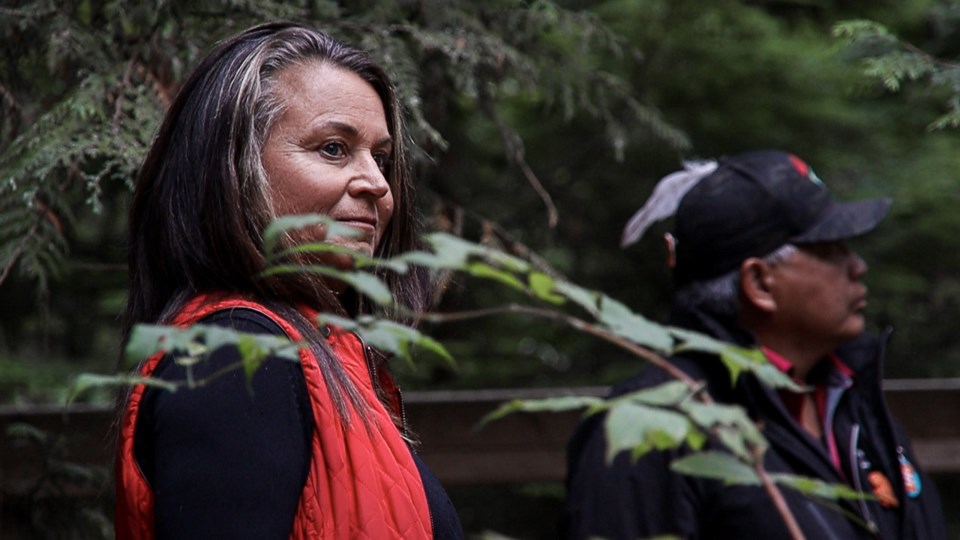A short film featuring one woman's pursuit to rediscover her heritage is coming to the Sunshine Coast.
Coming Home for the Children is a glimpse into Charlene SanJenko’s journey of starting to reconnect with her community and her culture.
The film’s screening will open the Sechelt Arts Festival at the Raven’s Cry Theatre on Friday, Oct. 13.
SanJenko explained that she was adopted as a child, and always suspected she came from Indigenous ancestry, and how in 2015 she started researching her background.
“It's just a really prevalent story because there's a lot of adults, adoptees, and folks that were put into the foster care system in the ‘60s and ‘70s,” said SanJenko. “And a lot of them have done this journey, but I think even more of them haven't bothered to do the journey back home.”
Living on the Coast since 2004, she said sharing her film here has particular importance to her.
She said her journey to reconnect with her heritage started at an event at the Gibsons Public Market.
SanJenko was hosting a fundraiser for a filmmaker, Dianne Whelan, where Whelan gifted her a small, intricately carved paddle created by an Indigenous artist.
“When she gave it to me, I had this sort of like, visceral body reaction to it, I literally had this really distinct reaction to it that I felt all through my whole body,” she said. “And that was actually the moment that I knew there was a bigger connection. There was something that I had to explore deeper.”
SanJenko said that Chief Wayne Christian, whose traditional name is Wenecwtsin, was instrumental in helping her reconnect with her culture.
“He's kind of been my bridge, he's been my connection to the community in so many ways. My teacher, my friend, my mentor, he's a knowledge keeper. He was the chief of my home nation for 40 years. For seven terms.”
SanJenko explained that Christian led the Indian Child Caravan in 1980, a march and demonstration in Vancouver that resulted in an agreement that gave the Splatsin Nation control over their own child welfare program.
“The anchor of the whole story was when Chief Wayne said to me ‘we can heal ourselves and our families in three generations if we keep it a priority,’ and I've never had anyone say that to me, something so direct and tangible,” said SanJenko. “From the moment he said that, he shifted, how I think about what I do, and how I think about who I am in the world.”
For those unable to make the Oct. 13 event, there will be an online screening open to the public on Oct. 30.
In the press release announcing her film, SanJenko said, “As an Indigenous woman raised in a non-Indigenous environment, I walk in two worlds. I crave to experience each day in an expanded state of my existence, fully awake to my whole life as a spiritual being in a physical body and connecting at a deeper level with my own pain as well as the pain of my ancestors and the healing possible through all my relations.”
Jordan Copp is the Coast Reporter’s civic and Indigenous affairs reporter. This reporting beat is made possible by the Local Journalism Initiative.




